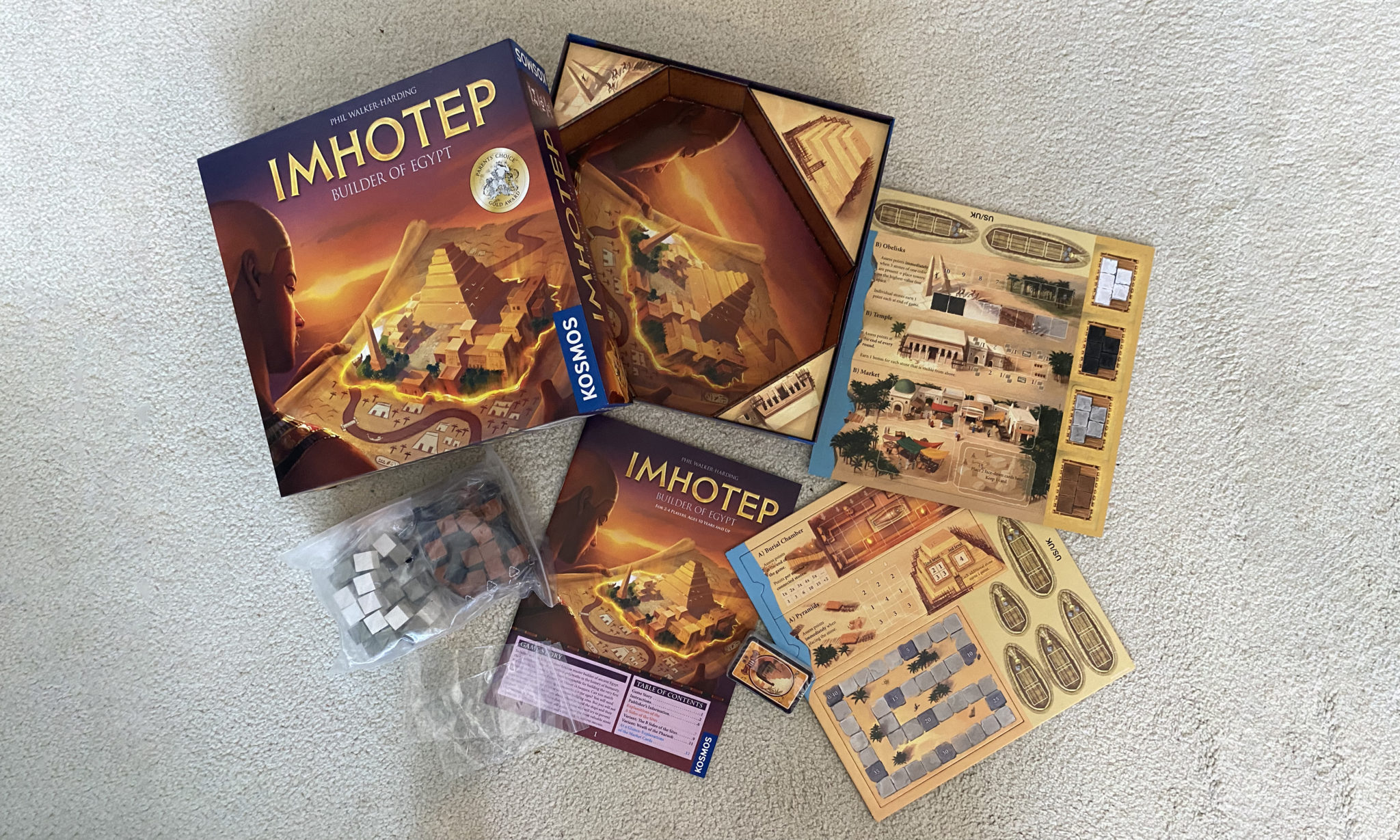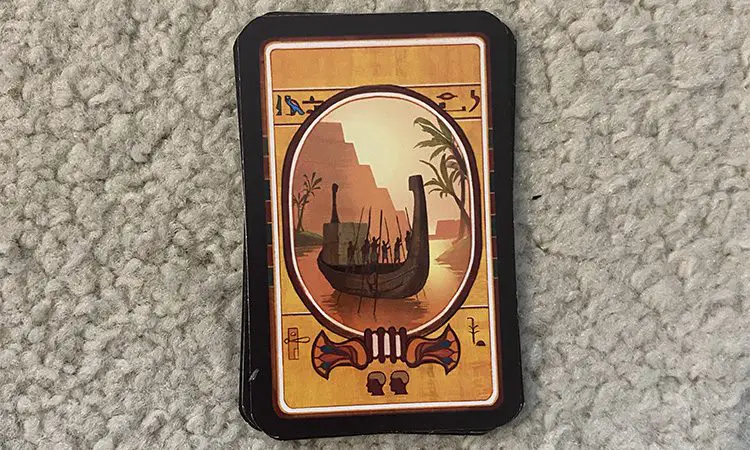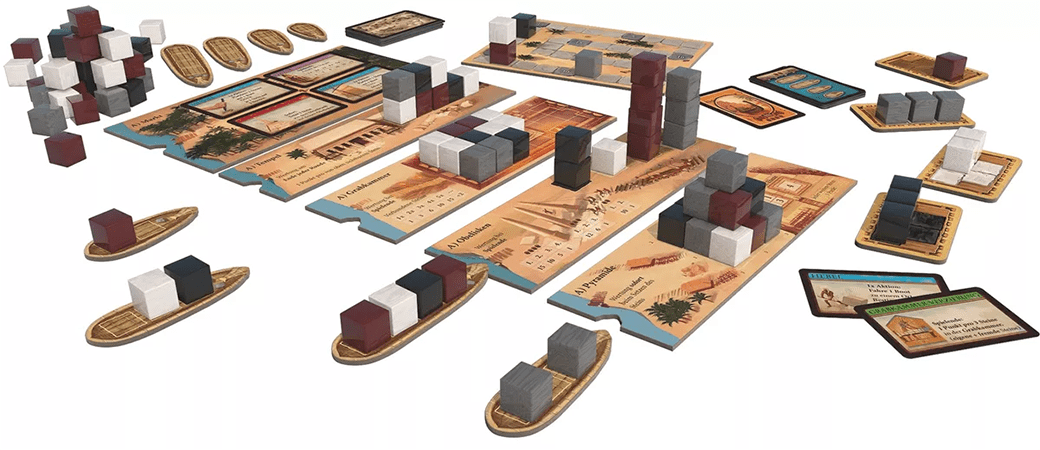May the best builder win! Thames and Kosmos presents Imhotep, a competitive city-building game based on the monuments of Ancient Egypt. Designed by Phil Walker-Harding with art from Miguel Comibra and Michaela Keinle, Imhotep has you and your friends play against each other to create the greatest monuments possible on the Egyptian landscape.

What’s In The Box?
- 120 Wooden “Stone” Blocks
- 30 Black
- 30 White
- 30 Brown
- 30 Grey
- 5 Site Boards
- 1 Scoring Track Board
- 8 Ship Tokens
- 4 Supply Sled Tokens
- 1 Black
- 1 White
- 1 Brown
- 1 Grey
- 21 Round Cards
- 34 Market Cards
- Game Rule Booklet
- 2 Small Plastic Baggies for the Round and Market Cards

How To Play Imhotep
After setting up the game board, each player picks a color (black, white, brown, or grey) which is then represented by the matching color stones and supply sled tokens throughout the game. Each player will take one stone and place it on the first square of the scoreboard before the game begins. For this review, we played a two-player game, meaning that when setting out the Round Cards, we used the cards that had two heads on them as seen below.

After shuffling the seven Round cards, one is discarded as the game only has six rounds. Once you decide who will begin each round, the starting player takes two stones and puts them on their supply sled, and the following player does the same with three of their stones.
Once each player has their designated stones, the first round card is revealed and the game can begin. Each round card features a picture of four ship tokens which will serve as the ship layout for each round. Players will also draw four market cards at the beginning of each round as well.

During each round, players are able to do one of four things during their turn: get new stones, put 1 stone on a ship, sail a ship to one of the 5 site boards, or play a blue market card. Players go back and forth taking turns until all four of the boats have been sailed to one of the sites.
Players move their pieces on the scoreboard forward based on how many points they have at the end of the round. If a player has placed stones on the Pyramid tile, those points are also tracked on the scoreboard but are counted during the round instead of at the end.
Once the round is over, the empty ships are placed back with the rest that were not used during the round, and the remaining market cards are removed from the board and placed in the discard pile. In theory, there will also be a different starting player each round, being the person who said the last ship to a tile.

Players repeat this process for a total of six rounds, and once the sixth round is completed, the final score is tallied. Along with the points collected from the Temple and Pyramid stones, the scores from the burial chamber, obelisks, and all of the market cards are tallied to find the sum of each player’s final score.
What Do We Think?
Imhotep is a great game. I am always partial to a game that has a limited amount of rounds that can be played before they end, so this was right up my alley.
Even though the instruction booklet may seem a bit daunting, it’s very clear cut and explains the setup of the game and how each round should go very well. Along with this, there are detailed descriptions for every game piece, as well as an alternate way to play the game once you get the hang of the regular version.
The art and quality of the pieces are great as well. It’s clear that there was a lot of care put into the presentation of the game and that there was a clear aesthetic in mind. As is a common criticism of mine, the market cards were a bit too small to effectively shuffle, but that’s not a major problem and is easily solvable.
Overall, Imhotep is good fun all around, and even though it might be a lot to start out with, it’s generally easy to grasp and a full game goes by relatively quickly, and that means that it is certainly playable over and over again.
Images Courtesy of KOSMOS
Have strong thoughts about this piece you need to share? Or maybe there’s something else on your mind you’re wanting to talk about with fellow Fandomentals? Head on over to our Community server to join in the conversation!

